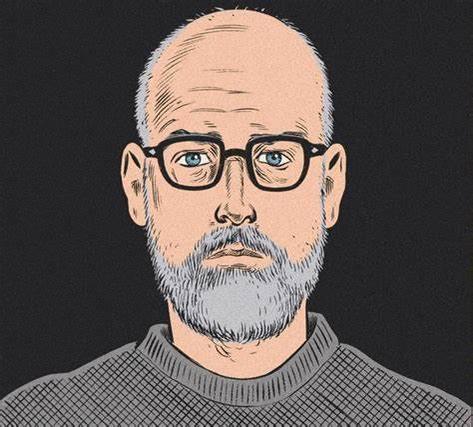"We're still here," John Cale congratulates himself after seeing his first album of new songs in a decade delayed by the pandemic and a recent UK tour canceled for health reasons.
With 80 years in tow, it's the only thing that matters.
“Right!” he snaps at him from the other side of a blank video conference.
His studio in Los Angeles is turned upside down, set up for a photo shoot and video shoot, and he prefers to just talk without letting anyone see him.
“What are you doing on the other side of this dark tunnel?” he laughs.
02:15
Trailer for 'The Velvet Underground'
Image from 'The Velvet Underground', by Todd Haynes.
The Welsh pianist, vocalist, arranger and producer, conservatory prodigy child, who traveled to the United States on a scholarship in 1963 to study alongside illustrious avant-garde artists, was not only one of the main players in the stylistic and thematic evolution of rock —he founded with Lou Reed the New York band that marked the future of this music, The Velvet Underground.
He will also have led a tortuous solo career, hesitating between symphonic music and the most histrionic rock, the arts of the heterodox singer-songwriter and electronic witchcraft.
With hardly any commercial income, but with immeasurable influence.
“The musical strangeness of Velvet didn't exist before.
We always wanted to sound elegant and brutal”
On her new recording,
Mercy
, you breathe the calamities that shaped these last songs during uncertain times: the unexpected years of Trump and Brexit, climate excesses and the loss of civil rights.
As musically up-to-date as he was in the mid-'60s, when he leapt from imperiled academia to more conspicuous experimentation, Cale taps into the intuition of young artists, using them as a mirror to his old age, distancing himself from any hint of nostalgia or senile conformism.
“It was a long process, but the music was coming in different ways,” he explains.
“I wrote the songs two and a half years ago and it has all been very complicated and interesting at the same time.
I ended up writing two or three versions of the songs and that's how I came to understand what the process was.
It was very interesting to have all those artists,
These elaborate compositions, densely organic, structured on contemporary, hallucinogenic and hermetic cadences, delve into our convulsed present without regard, nor defeatism.
Cale sings alongside new diva Weyes Blood on 'Story of Blood', conjuring up the idea that only solidarity will get us through.
“It was about figuring out the best way to approach the song, because she has such a sonorous, very rich voice,” she explains.
"It didn't take too long for him to establish the idea of her."
The instinct for collaboration that characterizes him flourished in 1965 with The Velvet Underground, a project from which he was expelled by Lou Reed after only two LPs, a long relationship of love and hate that would make him despise those historic records as promising sketches that never reached the goal imagined by both
After Reed's death in 2013, a productive creative friction was extinguished forever, and Cale was struck by the unreality of seeing his partner go.
“In most collaborations, two and two add up to seven”, Cale asserts in the feature film that Todd Haynes dedicated to the crucial New York band in 2021. “That musical strangeness of ours didn't exist before and we always maintained a level looking for everything to sound elegant , that sounded brutal.
With the song 'Venus in Furs' I understood that our
“That musical strangeness of ours didn't exist before and we always maintained a level looking for everything to sound elegant, to sound brutal.
With the song 'Venus in Furs' I understood that our
“That musical strangeness of ours didn't exist before and we always maintained a level looking for everything to sound elegant, to sound brutal.
With the song 'Venus in Furs' I understood that our
Rock and roll
sounded like no one had ever done it before."
“Nico always went to his own.
When she composed a song, he did not pay attention to other people's opinions ”
After six decades active, the author of
Paris 1919
he carries a legacy full of sought-after contradictions, because he knows that only by avoiding them can one advance in art.
Introspective yet curious, attentive to sociopolitical phenomena, today he seems to have arrived at an all-encompassing humanist vision, as in the album's title track, flecked with the techno sounds of Laurel Halo, or in the hopeful proclamation 'Not the End of the World'.
An optimism, his, well modulated: “I am not one of those who fall for good-natured statements.
I don't think we should talk about these things, but rather do them, take action."
In 'Time Stands Still', together with the electronic duo Sylvan Esso, we contemplate the collapse of ancient Europe.
Nobody like Cale, in the field of rock that in the seventies became a lingua franca and big business, reviewed the history of the old world with such zeal, between romantic and critical.
This attachment to his European roots, which he alternated with his love for Sam Peckinpah's westerns or Sam Shepard's theatre, did not prevent him from always being at the forefront, from playing John Cage pieces on the piano that lasted all day or emitted buzzes. infinite with his electric viola next to the guru La Monte Young.
What will fuel this perennial creative ambition: curiosity, restlessness or a desire for knowledge?
"The latest," he replies.
“How things can change and how you can use other artists to translate your musical ideas.
Everyone you mention had their own style of approach to music.
There were many different kinds of music and I got carried away by all of it.
To play with other artists and in different ways, you have to throw your caution to the wind, face what's in front of you.
"I wish I had recorded with Bowie, but we were both stumbling around in the dark"
More in keeping with his age is the memory of those who are no longer there.
“I'm not interested in writing about my own mortality,” she says when asked about it.
"You go first...!", She ditch.
But there is in
mercy
songs dedicated to the ill-fated, unrepeatable Nico, 'Moonstruck (Nico's Song)', and to David Bowie.
“I think she was unstoppable, she insisted on going her own way,” she says of the model who became a singular rock icon after her brief stay in the group.
“His relationship with Jim Morrison influenced his life as a poet.
And that attitude was increasing.
When he composed a song, he did not pay attention to other people's opinions.
You have a lot of fun with those kinds of personalities.
He didn't always listen to my advice, but the way he lived his life was exciting."
In Bowie's case, 'Night Crawling' returns to the days when the two devoured the effervescent nights of Manhattan.
Before a concert, Bowie asked Cale to teach him how to play the viola.
They wanted to record together, but only managed to put a song sketch on record.
“I wish we could have done something more…”, he laments.
“But, once the party started, we didn't stop anymore.
I think we were actually both stumbling around in the dark."
In 1988, Cale recognized his inability to stick to one piece of music.
“I never underestimated what
rock and roll
could do , it actually became excessive,” he said at the time.
“It's the way the songs were written.
There was always something to learn, and it gets boring after a while, you can't keep educating people.
And it turned out that I relaxed more when I played Dylan Thomas than when he wrote
rock and roll .
.
Which is a bit absurd."
In other passages of Mercy, her blunt sense of humor emerges.
In 'The Legal Status of Ice', where she is accompanied by the Fat White Family, she imagines what will happen to the territorial waters with the melting of the poles.
In 'Marilyn Monroe's Legs (Beauty Elsewhere)' she hones her surreal skills, and, along with Animal Collective, she acknowledges in 'Everlasting Days' that regretting one's mistakes only leads to constant disappointment.
Cale started the project without knowing where it would take him and admits that the end result bears no relation to his initial idea.
“I relaxed more when I put music to Dylan Thomas than when I composed 'rock and roll'”
“In each corner things appeared that made it interesting and still unfinished”, he confesses.
“And that's where all those other artists came along.
With them there was always room for small changes, and sometimes not so small.
All this changed the tone of the music.
In some cases you just have to let the artist perform.
They all had their own ideas.”
Is it rejuvenating or just inspiring to work with who could be your grandchildren?
"Both," he replies.
“They are the visions that other people have of what you are doing, and you always come to a totally different perspective of what you have done.
You take a chance and try to use the other person's imagination and recreate the song.
Now it is different, I pay more attention to the ideas of others.
It's not that I'm more open;
A composer with seven lives
John Cale remembers his childhood in Wales as a Christmas story by Dylan Thomas, whom he would adapt symphonically in
Words for the Dying
(1989).
The happiness of seeing his mother running a home full of music has not left him.
"We listened to the BBC," he says.
“Mom taught me to play the piano.
It was very nice, a good place to learn.”
Other memories have faded: an English father working in the mines, ostracized at home for not speaking Welsh, or being abused by a clergyman at Crynant Church, where he was born in 1942. It is not difficult to connect these realities with a work lived between extremes.
So while Cale looks on in the classic
Paris 1919
(1973) “an example of how to express something horrible in the most beautiful way possible” —city and year refer to the Treaty of Versailles that ended the First World War and whose rigor was used as an alibi by Nazism—, in other of his jobs are imposed anger or hopelessness.
In
Fear
(1974), for example, an album corroded by the paranoia of the alcohol and cocaine addict —being a father, in the eighties, he would bet on a healthy life—, or in
Music for a New Society
(1982), terrible panorama of an inhospitable world and condemned to the involution that today seems prophetic.
Cale revisited those themes in 2016 on
M:FANS
, an album that opens with a ghostly prelude: the voice of his mother speaking to him in Welsh.
More serene is shown in the dozen soundtracks composed mainly for European cinema.
French films by Olivier Assayas, Philippe Garrel or Patricia Mazuy and a Spanish feature film, in which he plays himself as well as providing the music,
Antártida
(1995), by Manuel Huerga.
And we must not forget his production work on iconic records, such as Patti Smith's
Horses
(1975), and others including the debut of The Stooges, recordings by his friend Nico or Jonathan Richman's Modern Lovers, in addition to Squeeze, Siouxsie & The Banshees, Happy Mondays or Los Ronaldos LPs.
Finally, her collaborations with Terry Riley, Brian Eno, Lou Reed —the tribute to his mentor Andy Warhol from
Songs for Drella
(1990)— or Bob Neuwirth confirm what
Mercy
exemplifies .
He was always an artist who, due to insecurity about his commercial potential or desire to share his points of view, sought to dialogue with his travel companions.
In art, as in schizophrenia, we are never alone.
You can follow BABELIA on
and
, or sign up here to receive
our weekly newsletter
.
Subscribe to continue reading
Read without limits
Keep reading
I'm already a subscriber


/cloudfront-eu-central-1.images.arcpublishing.com/prisa/FPM2IKJUNFGWPPZIRZ52BX74EU.jpg)





/cloudfront-eu-central-1.images.arcpublishing.com/prisa/GUNW6JJDHBCKPFW2RE2KTZ6N7M.jpg)






